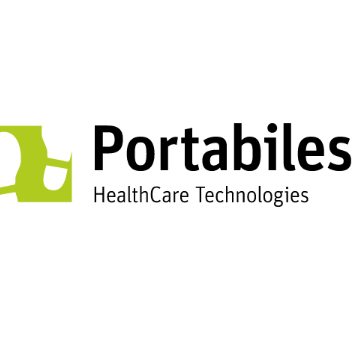AI-based gait analysis
The challenge
More than 10 million people live with Parkinson’s disease (PD) worldwide.[1] PD is a long-term degenerative disorder of the central nervous system that mainly affects the motor system. The symptoms usually emerge slowly and, as the disease worsens, become more common. 80% of advanced PD patients experience ‘freezing-of-gait’ attacks, which are the complete inability to move for seconds or even minutes.[2]
Patients find it difficult to handle these symptoms, so doctors generally rely on inaccurate patient diaries to adapt the very complex medication to the patient’s symptom occurrences. This results in a high risk of falling, fractures, and frequent hospitalisations. In Germany, this means that despite the prevalence only being around 0.5%, the cost of treatment is 1% of the total healthcare cost (> 2,5 bn €).[3]
The solution
ParkinsonGo is the ultimate companion for Parkinson’s patients. It is an AI-based gait analysis that provides individualised tracking and advice on symptoms and medication, improving the quality of life for patients.
Based on the symptom patterns, the app provides exercises tailored to the capabilities of the patient and advises on better gait quality and improving stability. It also gives important tips that support the patients in managing their disease.
Attending doctors receive an in-depth analysis of symptom patterns that helps them to find the best treatment regime for their patients.
EIT-Health contributed significantly to the development of ParkinsonGo through their investment in the start-up rescue instrument in 2020.
Expected impact
With the novel functions implemented within the CareMetric project, ParkinsonGo will not only provide neurologists with valuable information for medication adjustment, but support patients’ individual needs based on real-world data.
ParkinsonGo will help patients become an active part of managing their disease. This improves the quality of life, increases participation in social life, fosters patient empowerment, and relieves caregivers. Remote patient monitoring is also a chance for patients to access healthcare, even in remote areas.
External Partners:
- Portabiles HealthCare Technologies
References:
[1] Harvard Health (2020). The facts about parkinson’s disease. Available at: https://www.health.harvard.edu/diseases-and-conditions/the-facts-about-parkinsons-disease
[2] Duncan, P. et al. (2015). Balance differences in people with Parkinson disease with and without freezing of gait. Gait & Posture, 42(3), 306-309.
[3] Nerius, M., et. Al. (2017). Parkinson’s disease in Germany: prevalence and incidence based on health claims data. Acta neurologica Scandinavica, 136(5), 386–392.
Members

CLC/InnoStars: France
Partner classification: Research, Tech Transfer, Clusters, Other NGOs
MADoPA is a Living Lab specialising in co-creation, experimentation and evaluation of technologies and services for the elderly. MADoPA is a non profit association created in 2009, financially independent and involved in multiple European, national and regional projects.
MADoPA
MADoPA, 2 Rue Gustave Eiffel, 10430 Rosières-prés-Troyes, France


CLC/InnoStars: Germany
Partner type: External Projects Partner
For telemedical care and for use in clinical trials, Portabiles Healthcare Technologies develop high-precision solutions for medical gait analysis – for better therapies and a better quality of life for patients with movement disorders. Their goal is to maintain the patient's ability to move for as long as possible through individually adapted therapy.


CLC/InnoStars: Germany
Partner classification: Education, Research, Hospital / University Hospital
Founded in 1743, FAU has a rich history. It is a strong research university with an international perspective and one of the largest universities in Germany, with 39,780 students, 265 degree programmes and 4,000 academic staff. At Universitätsklinikum Erlangen (the university hospital), 7.400 employees promote health and cure disease. With up-to-date equipment and science-based diagnostic and therapeutic procedures, the 24 departments of the FAU, 25 clinical departments, 19 institutes, and 21 independent departments at Universitätsklinikum Erlangen comprehend every field of modern medicine.
Friedrich-Alexander-Universität Erlangen-Nürnberg
Friedrich-Alexander-Universität Erlangen-Nürnberg, Schloßplatz 4, 91054 Erlangen, Germany
Key Activities in Research and Developement
Biomedical engineering, Life Sciences, Social sciences / health economics
Key Activities in Social Innovation
Healthcare provision
Key Activities in Business Creation
Incubation, Technology Transfer
Key Activities in Education
Entrepreneurship training, Technical faculties, Medical faculties
